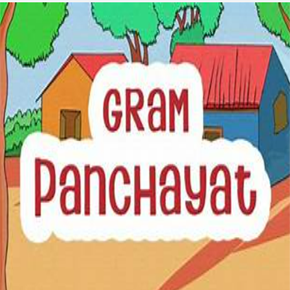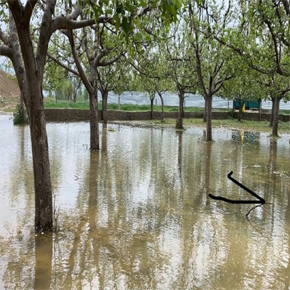Bureaucrats are not addressing public issues on priority, as corruption and loot continues in J&K even after abrogating Article 370, writes RAJA MUZAFFAR BHAT.
WHEN Article 370 of the Indian Constitution was read down in August 2019, Union Home Minister Amit Shah said that special Constitutional status granted to Jammu & Kashmir was the root cause of corruption and misgovernance in the erstwhile state of J&K.
It has now been more than more two years since this constitutional provision has been abrogated, but corruption and misgovernance continues to affect aam aadmi in J&K which is now a Union Territory. On many occasions, Prime Minister Narendra Modi has assured the people of J&K that corruption will not be tolerated. But unfortunately, we don’t see any end to it even after being directly ruled by New Delhi for over two years now.
Earlier this year, on the second anniversary of the abrogation of Article 370, the External Affairs Minister Dr S. Jaishankar said that J&K has experienced true democracy, development, good governance and empowerment in the last two years. He made similar comments last year as well on the first anniversary of the abrogation of Article 370.
But an analysis of governance at the grassroots level shows reveals the hollowness of these claims. The on-ground situation is that corruption is eating away the vitals of the society in the same way as it did prior to the abrogation of Article 370.
The Government of India, through the Union Ministry of Home Affairs and Lt. Governor Manoj Sinha, continues to rely upon corrupt government officials from the civilian and police administration in J&K. These officers are further patronizing corrupt officers in other administrative services. This has resulted in no public accountability, and aggrieved citizens feel that all doors of justice have been shut down for them.
Mismanagement in PM’s Ujjwala Yojna
On August 10, Prime Minister Modi launched the second phase of the Pradhan Mantri Ujjwala Yojna (PMUY), wherein free LPG connections would be given to one crore poor families across India. Phase one of this scheme was launched in May 2016, whereby more than 8 crore poor families across the country benefited from free LPG connections in the last five years, as per the union government.
However, have the poor really been benefited from this scheme across India, and especially in J&K?
For the last few years, this author has been getting constant complaints from several below poverty line (BPL) families, alleging that they were not being provided free LPG gas connections by their respective gas dealer of the area as per the Ujjwala Yojna.
I was unable to even seek information under the Right to Information (RT) Act about the scheme, also called ‘Modi Gas scheme’ in Kashmir as I did not know which public authority or government office the information should be sought from. The Food Civil Supplies and Consumer Affairs department (FCS & CA) officers told me that this information is not available with them. As per Section 4 of the RTI Act, the FCS & CA department should have obtained the list of beneficiaries from all the LPG dealers across J&K, and uploaded the same on its official website.
I went through some district websites, but the Ujjwala beneficiaries list was not uploaded on any of them either.
Finally, I decided to seek information directly from the Union Ministry of Petroleum and Natural Gas under the RTI Act. One of our activists, Mohammad Mudaser, filed an online RTI application with the Ministry last month. Within a day or two, his RTI application was transferred by the Ministry to two public authorities, namely Bharat Petroleum Corporation Ltd. (BPCL) and Hindustan Petroleum Corporation Ltd. (HPCL).
BPCL denies info
As previously reported by me on this outlet, Mudaser wanted the names of the Ujjwala beneficiaries in some selected areas of Baramulla, Budgam, Kupwara, Pulwama and Srinagar districts. We planned to cross check the names by carrying out on-spot verification in selected villages, colonies and mohallas through our volunteers.
However, the Central Public Information Officer (PIO) in the BPCL (LPG) headquarters at Mumbai, namely S. K. Padhi refused to share the information which should have been proactively available on government websites as mandated under section 4(1)(b) of the RTI Act. The erring officer instead invoked Section 8(1)(j) of the RTI Act.
The reply of the officer reads:
“Information sought relates to personal information the disclosure of which has no relationship to any public activity or interest, and would cause unwarranted invasion of the privacy of the individual. Hence denied as per 8 (1) j of RTI Act 2005 “
Mudaser sought such information which the government is legally mandated to make available to every citizen at mohalla, block or panchayat level. One is unable to understand how seeking the beneficiary list under the scheme is equated with invasion of privacy? If a public spirited citizen like Mudaser wants a list of BPL families provided free LPG gas connections in a particular village or a mohalla, how can this amount to the invasion on the privacy of those poor individuals or families?
There are thousands of poor families who have applied for Ujjwala gas connections, but are not aware of the status of their applications. Are BPL families expected to file RTI applications through an online portal before the concerned Ministry?
The local administration should have made things easy and transparent for applicant by making all Ujjwala lists available at the panchayat level. By evading transparency, such public authorities promote corruption and misgovernance, and conceal the delinquency of their fellow officers and gas agencies.
Cross checking at Wangwas village
Luckily, HPCL provided some information about Ujjwala beneficiaries to Mudaser.
I had apprehensions that free LPG connections were, in fact, approved for many BPL families who had submitted their documents a few years back, but the same was channelled to some other people against cash payments of Rs. 2,500 – 3,000. Those BPL families who were provided LPG connections under Ujjwala were made to pay an amount ranging between Rs. 600 and Rs. 2,500.
This I confirmed after visiting the village Wangwas Goggee Pathri in Budgam. This village comprises extremely poor families who are mostly landless and earn their livelihood by making earthenware. Wangwas Goggee Pathri is popularly known as the village of kumhars [potters].
When we cross checked the beneficiary names provided by HPCL in this village, we found that there were at least one dozen families whose name were much entered as Ujjwala beneficiary but an LPG connection, which includes an LPG Gas cylinder, a stove and a regulator with plastic pipe, had not been given to them.
The same were probably sold to other people, and thus the state exchequer was looted.
One of our volunteers, Mushtaq Ahmad, went to the house of one Mukhti Begum, aged 70 years, in the village a few weeks ago. Mukhti told Mushtaq that she had not received the gas connection, but her name figured in the Ujjwala beneficiary list at serial number 661486. There were several other women who had similar complaints.
Mushtaq exposed this mismanagement through social media, and within 24 hours, the local gas agency dealer went to Mukhti’s house with a Gas cylinder, stove and regulator.
I myself went to the village and interviewed Mukhti. She was happy to get the Ujjwala gas connection. His son Maqbool demanded a thorough probe into the issue across J&K.
My video interview with Mukhti and Maqbool has gone viral on social media, but the government is yet to probe the scam which happens to be affecting the Prime Minister’s flagship programme for the poor.
No probe initiated
There are several videos on social media which prove that indigent people in J&K have been looted, especially in Budgam district. Local news channels have exposed it. Newspapers have been writing about it, but the government is least bothered to even investigate this matter.
I have been uploading all my videos and newspaper articles about the Ujjwala scam on my Facebook and Twitter pages. The Deputy Commissioner of Budgam is aware of all this as his official Twitter handle was tagged by me on a post about this. However, unfortunately he has not even asked an SHO of the area to file an FIR on the issue.
Is this the good governance and corruption-free administration PM Modi, Home Minister Shah and External Affairs Minister Jaishanker talk about? I am sure that poor people are being scammed by LPG companies and their dealers not only in J&K but at a national level. In August 2019, Uttar Pradesh Police had also uncovered a scam involving this scheme in the Balrampur district, and later that year the Comptroller and Auditor General of India unearthed a massive scam under this scheme as well. This needs a CBI inquiry across all states.
Earlier this year, free ration meant for the poor under the PM Gareeb Kalyan Anna Yojna was looted, and it was reported by me on this outlet. That matter, too, is yet to be probed by the government, in spite of many assurances in that regard.
When people try to seek information from District Magistrates or other officers under RTI Act, the same is denied, and ironically, due to the closure of the J&K State Information Commission (SIC), aggrieved information seekers are made to file appeals to the Central Information Commission (CIC) where the cases are listed after a year or so. This was not the case with the J&K SIC. There, our appeals were supposed to be disposed of within 60 to 120 days as per the provisions of the J&K RTI Act 2009 (now repealed post the abrogation of Article 370).
Was Article 370 abrogated for opacity in public affair which has, in turn, festered the loot of public money?
























































































